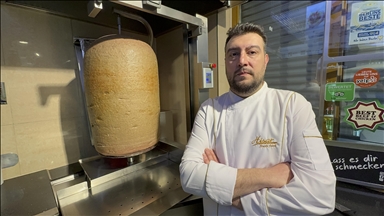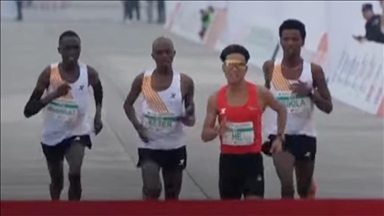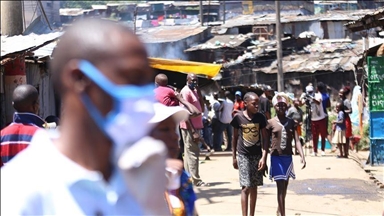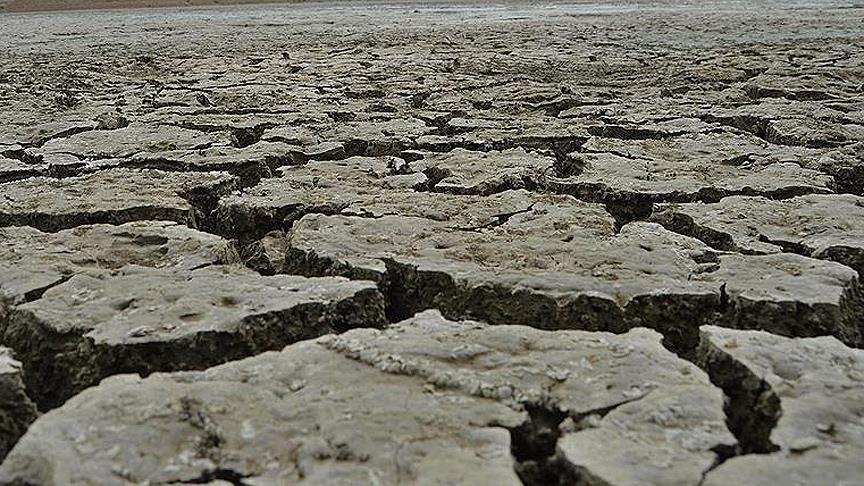
By Handan Kazanci
ISTANBUL
Governor of a drought-hit county in eastern Kenya has called for humanitarian aid from Turkish institutions during his visit to Istanbul on Monday.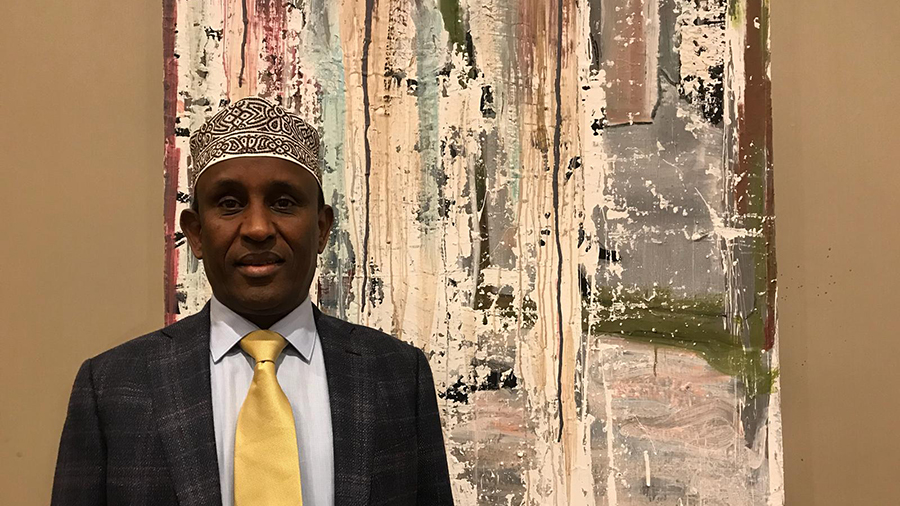
“We look forward to a lot of support from the Turkish institutions and Turkish authorities, and we appeal to them to come to support your brothers and sisters in Garissa,” Ali B. Korane told Anadolu Agency.
Korane is in Istanbul to hold talks with Turkish officials to find funds for East African country’s Garissa county, located near the border with Somalia.
According to Korane, the main issues to tackle in the over-600,000-populated county are “sponsorship for students and youth empowerment, cultural development and building of health and education facilities especially.”
We look forward to close cooperation, he said.
“Turkey is a big economy and a big democracy, a big Muslim country … We are losing our livelihood due to climate change,” said the governor.
The price of food in Kenya has shot up to alarming rates due to shortages caused by the drought affecting over 11 million people in East Africa -- 3 million living of them in Kenya.
According to the Kenyan government records, 23 counties out of 47 are affected by the drought, the worst hit areas being Northern Kenya and the coastal region, both predominantly inhabited by Muslims.
“We are very hopeful that the cooperation will come back to the level which we need and [Turkish] people will support our people,” Korane added.
Dadaab refugee camp
Garissa also hosts one of the world’s largest refugee complexes Dadaab, established by the UN in 1991 amid the Somali Civil War as well as drought and famine.
“We are also hosting refugees for almost 30 years, Somalia refugees,” Korane said.
“Any support of essential sectors of education, health, livelihood, agriculture will be very welcome. These are areas we recommend for cooperation.
"Especially education and sponsorship of students in local universities will create a long time relationship between our county government and the government in Turkey,” he added.
Dadaab had reached its peak when it hosted 600,000 refugees, but now the number has declined and UN figures say there are now nearly 250,000 refugees in the camp -- mostly Somalis.
Turkey’s Cooperation and Coordination Agency (TIKA) and some other aid agencies have already provided support for the country, especially on schooling and health.
“Our relations [with Turkish aid organizations] started a long time ago -- almost six years ago. But unfortunately [the relations] do not run smoothly as they should have,” Korane said, adding: “The relationship slowed down due to poor coordination. We are trying to revive it now.”
“So we tend to have good relations because there is a lot of potential now and there are a lot of areas for cooperation, and we expect a lot of support from the Turkish institutions,” he added.
“Turkey has given support for refugees during the [Muslim holidays] Eid al-Adha and Eid al-Fitr,” Korane said emphasizing that Turkish institutions mainly distributed food and clothing for the refugees and also for the population in Garissa.
“Turkey also supported the development of health sector in Dadaab. Also very significant; they built an orphanage which is hosting mainly refugee children and local children from the local population,” he added.
Anadolu Agency website contains only a portion of the news stories offered to subscribers in the AA News Broadcasting System (HAS), and in summarized form. Please contact us for subscription options.


